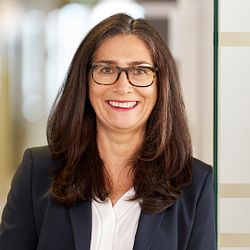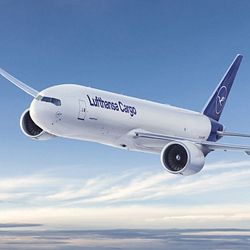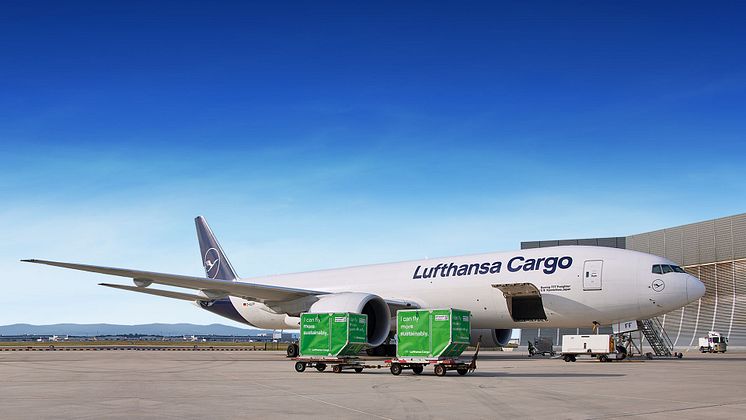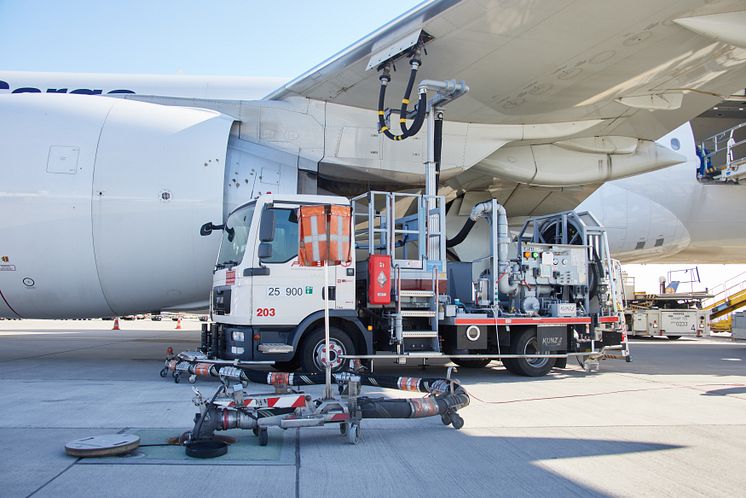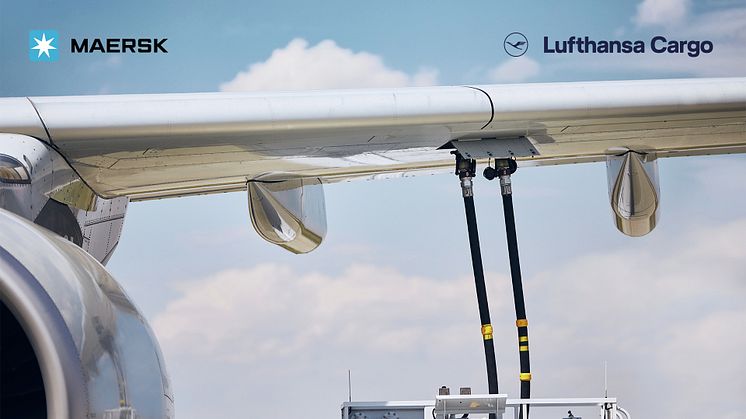
Press release -
Lufthansa Cargo and Maersk launch cooperation to support decarbonization of airfreight
400 metric tonnes of SAF to be used in the remainder of 2024
Lufthansa Cargo and A.P. Moller - Maersk (Maersk) have signed an agreement to promote the decarbonization of airfreight through the use of Sustainable Aviation Fuel (SAF). Lufthansa Cargo will use 400 metric tonnes of SAF on behalf of Maersk in the remainder of 2024, which is an important contribution in the year-end business with traditionally high cargo volumes. The expected reduction of CO2 emissions corresponds to at least 1,200 metric tonnes.
“Cutting greenhouse gas emissions from airfreight is one of the most challenging tasks within the decarbonization of global logistics and supply chains. This is why we are excited to partner with Lufthansa Cargo in this important task,” says Morten Bo Christiansen, Head of Energy Transition at A.P. Moller - Maersk. As one of the globally largest logistics companies, Maersk aims to reach net zero greenhouse gas emissions by 2040 across all modes of transport as well as other business areas like warehousing and container terminals. “The uptake and availability of SAF in the aviation industry is still limited. Our agreement with Lufthansa Cargo enables Maersk to contribute to an increase in the uptake.”
“SAF is a decisive technological key to more sustainable flying and essential for the energy transition in aviation,” says Ashwin Bhat, CEO of Lufthansa Cargo. “With Maersk we are jointly making a valuable contribution with the new agreement. At the same time, more sustainable flying also requires major efforts for a modern fleet and increased efficiency in flight operations. It is only through this interplay that change can be achieved sustainably.” With its Boeing 777 freighter fleet, Lufthansa Cargo continues to rely on the most modern and efficient aircraft in its class.
Background on Maersk ECO Delivery Air
Maersk will allocate the achieved emissions reduction to one of its European airfreight customers as part of its ECO Delivery Air product. ECO Delivery Ocean, Air and Inland are products offered by Maersk aiding in reducing GHG emissions when compared to conventional fossil energy sources. Maersk is the first company which has net zero targets validated by the Science-Based Targets initiative (SBTi) using the maritime guidance.
Background on the use of Sustainable Aviation Fuel
The SAF used by Lufthansa Cargo is produced from biogenic residues such as used cooking oil using the HEFA (Hydroprocessed Esters & Fatty Acids) process. Through the Lufthansa Group, Lufthansa Cargo offers SAF from established suppliers from Europe. Since September 2021, all Lufthansa Cargo customers have been able to have their freight transported more sustainably by choosing the Sustainable Choice add-on service.
Over its entire lifecycle (production, delivery process, combustion in the engine), SAF based on waste biomass has an approximately 80 percent lower CO2 footprint than conventional fossil kerosene. As a so-called "drop-in" fuel, it can be integrated into existing flight operations infrastructures without any modifications. For operational reasons, it is not possible to refuel individual selected flights.
Lufthansa Cargo is offering this fuel through the Lufthansa Group, which is working with partners worldwide on the research and development of SAF and the next generation of synthetic fuels. In addition to the use of SAF, Lufthansa Cargo, together with the Lufthansa Group, is pursuing ambitious climate protection goals: By 2030, the Lufthansa Group aims to halve its net CO2 emissions compared to 2019 through reduction and compensation measures and strives for a neutral CO2 balance by 2050.
Topics
Categories
Lufthansa Cargo AG
With revenue of 3.0 billion euros and a transport performance of 7.5 billion freight ton kilometers in 2023, Lufthansa Cargo is one of the world's leading companies in the transport of airfreight. The company currently employs around 4,150 people worldwide. Lufthansa Cargo's focus is on the airport-to-airport business. The route network covers around 300 destinations in more than 100 countries, using both freighter aircraft and cargo capacity from passenger aircraft operated by Lufthansa, Austrian Airlines, Brussels Airlines, Discover Airlines and SunExpress, as well as trucks. The majority of the cargo business is handled via Frankfurt Airport. Lufthansa Cargo is pursuing the goal of becoming the world's most environmentally friendly cargo airline. To achieve this, the company relies on state-of-the-art technologies and constant investments in the area of sustainability. In 2023, important milestones were reached, such as the investment in the continuous expansion of the B777F fleet, the expansion of short- and medium-haul networks with A321 freighters, and the continuation of the Sustainable Aviation Fuel program. In 2024, Lufthansa Cargo plans to successively equip its B777F fleet with Sharkskin technology, implement further digital services and contribute to reducing CO2 emissions through sustainable logistics solutions. Lufthansa Cargo is a wholly owned subsidiary of Deutsche Lufthansa AG and the specialist for the logistics business of the Lufthansa Group.

